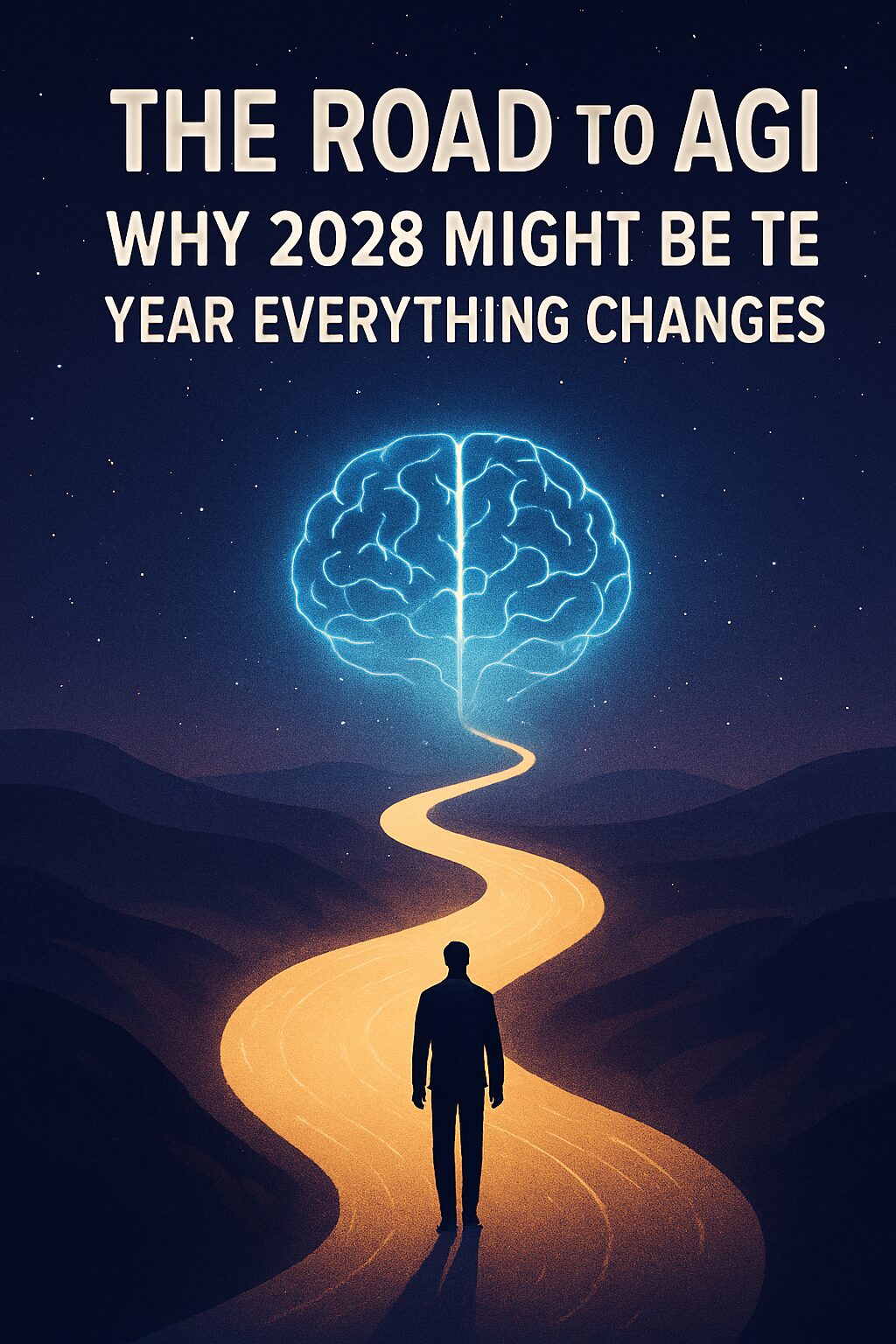Introduction
Artificial General Intelligence (AGI)—the holy grail of AI research—is no longer a distant dream. Defined as a machine’s ability to perform any intellectual task a human can, AGI promises breakthroughs in science, medicine, and global problem-solving. As of 2025, leading experts suggest we may reach AGI as early as 2028, with some estimating a 50% probability within that timeframe.
This article explores five compelling signs that we’re rapidly approaching AGI, and what it means for the future of humanity.
1. 🚀 Accelerating AI Capabilities
Recent advancements in large language models (LLMs) have pushed AI far beyond simple chatbots. In just a few years, models have evolved from answering trivia to solving complex reasoning tasks, writing code, and even outperforming PhDs in scientific benchmarks.
- Reinforcement learning techniques now enable AI to reason and plan
- Models are completing multi-week projects autonomously
- Performance is doubling every few months post-2024
This exponential growth suggests AGI-level capabilities may emerge sooner than expected.
2. 🧠 Emergence of Agentic AI
AI systems are transitioning from passive tools to autonomous agents. These agents can:
- Set goals and pursue them without human prompts
- Learn from their environment and adapt strategies
- Collaborate with other AI systems to solve complex tasks
This shift from reactive to proactive behavior is a key milestone toward AGI.
3. 🧪 AI Surpassing Human Expertise
AI is now matching or exceeding human performance in:
| Domain | AI Achievement |
|---|---|
| 🧬 Scientific Research | Solving protein folding and generating hypotheses |
| 💻 Software Engineering | Writing and debugging code at expert level |
| 📚 Education | Tutoring students and passing standardized exams |
| 🧮 Mathematics | Solving advanced problems with symbolic reasoning |
These capabilities reflect the kind of generalist intelligence once thought exclusive to humans.
4. 🌐 Industry Confidence and Investment
Leaders in AI—including Sam Altman (OpenAI), Dario Amodei (Anthropic), and Demis Hassabis (DeepMind)—have publicly stated their belief that AGI is achievable within the next 3–5 years.
- Billions are being invested in AGI-focused research
- New architectures are being explored beyond transformers
- AI companies are racing to build scalable, aligned systems
This surge in confidence and funding is accelerating the timeline.
5. ⚠️ Growing Ethical and Safety Concerns
With AGI on the horizon, experts are sounding alarms:
- Shane Legg (DeepMind) estimates a 50% chance of AGI by 2028—and a 5–50% chance of human extinction within a year of its arrival
- Geoffrey Hinton warns of catastrophic risks if AGI is misaligned
- Governments and NGOs are scrambling to draft AI safety regulations
The urgency of these concerns reflects how close we may be to crossing the threshold.
🔍 SEO Tips for AGI Content Creators
✅ High-Impact Keywords
- “AGI by 2028”
- “signs of artificial general intelligence”
- “AI surpassing human intelligence”
- “AGI predictions 2025”
✅ Metadata Optimization
- Meta Title: “AGI by 2028? 5 Signs We’re Closer Than Ever”
- Meta Description: “Explore five compelling indicators that Artificial General Intelligence may arrive by 2028, and what it means for the future of humanity.”
✅ Structured Formatting
- Use numbered headings, tables, and bullet points for readability
- Include alt text for visuals (e.g., “AI agent solving scientific problems autonomously”)
Conclusion
AGI is no longer science fiction—it’s a fast-approaching reality. With exponential progress in AI capabilities, agentic behavior, and expert-level performance, the world may soon witness machines that think, learn, and innovate like humans.
Whether this leads to a golden age or a global reckoning depends on how wisely we prepare.

